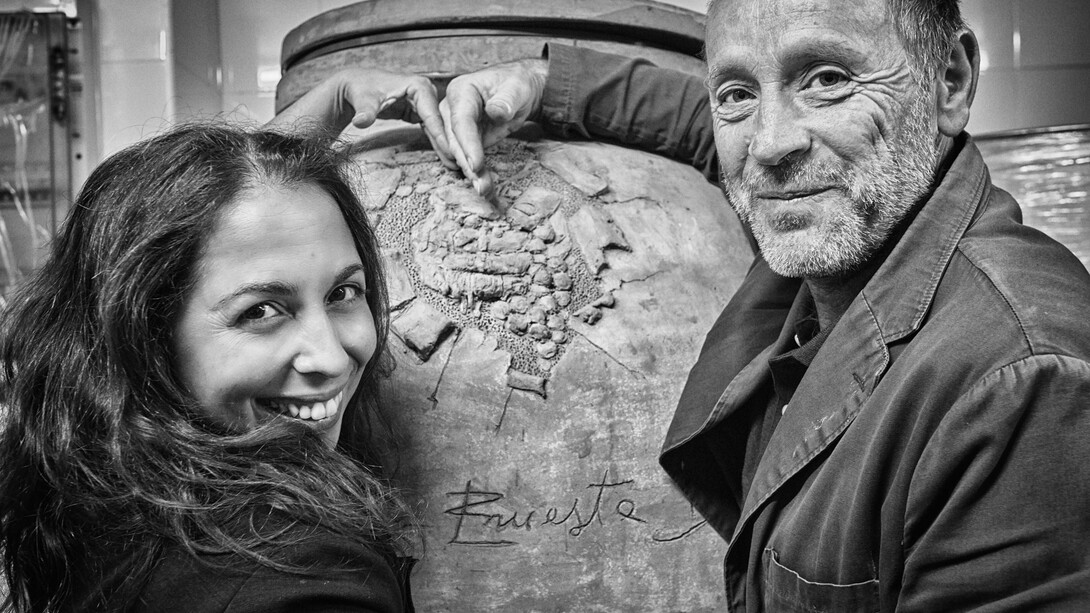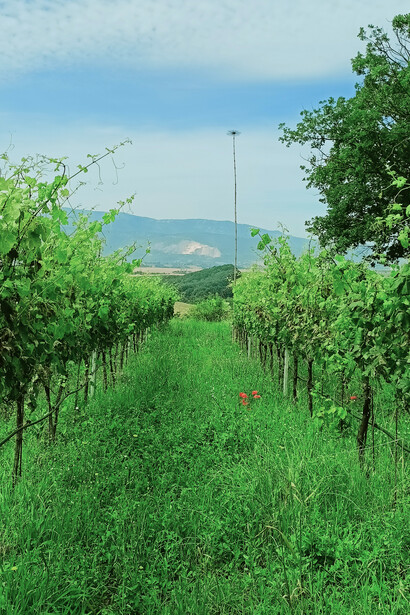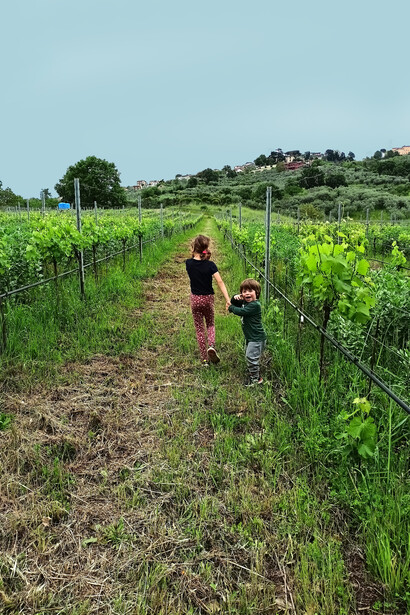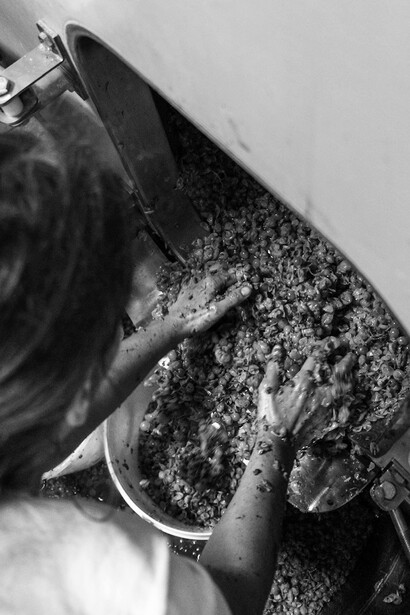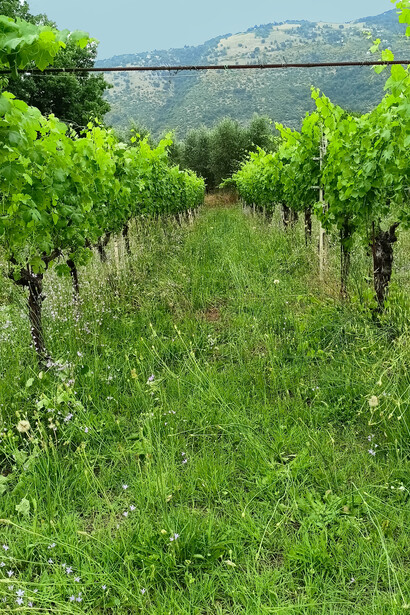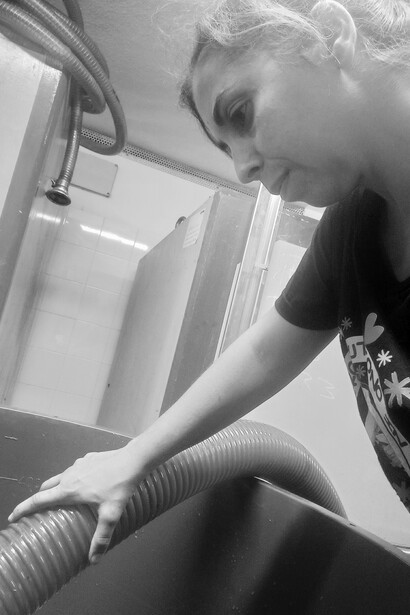“A farmer is different from all other workers,” used to say my father. A farmer, unlike everybody else in the work world, is free from space and time and only has nature to follow. No matter how wealthy, capable, knowledgeable, in the end, a farmer is “under the sky”, and has to accept and make the best of what Providence deals him/her. I wanted to write about Passerina del Frusinate, a white grape variety from Ciociaria, that area south of Rome, identified with the province of Frosinone, that gave the name to La Ciociara, the famous 1960 movie by Vittorio De Sica, based on Alberto Moravia’s novel with the same name, starring a young Sofia Loren.
A land of farmers and shepherds, birthplace of Cicero and Marcello Mastroianni, Ciociaria is characterized by the central Apennine mountains, a natural border with Abruzzo and Molise, by hills, and by the valleys along the two major rivers, Sacco and Liri. Enologically, Ciociaria is the homeland of Cesanese, a red grape with two varieties – del Piglio and d’Affile - and Passerina, a white grape that produces dry, sparkling, and sweet (passito and late harvest) wines.
I was looking for a varietal Passerina wine when I stumbled on Raphael by Maria Ernesta Berucci, an energetic, young artisanal winemaker from Piglio, who, together with her husband Geminiano Montecchi, is carrying on her father Manfredi’s tradition: “Our approach goes beyond organic protocol, and it is based on the control and management of the vital processes of living organisms through the application of self-produced homeopathic treatments made out natural substances present in our farm. In this way, the natural defenses of plants against pests, plant pathologies, and environmental stresses such as drought, frost, hail, etc., are stimulated.
We also use other methods, such as the reproduction of native microorganisms, to stimulate soil fertility. The work in the vineyard is done by hand from pruning to harvesting. “Being in the vineyard on foot” allows us to follow the progress of our work from the soil to the grapes and monitor the phenological growth of the latter closely and intervene as soon as possible when necessary. We apply the same philosophy in the cellar through the spontaneous fermentation of musts, without the addition of selected yeasts, adjuvants, sulfites, or other enzymes.
In addition to routine chemical analysis of musts, we monitor the evolution of our work with qualitative analyses such as soil and wine chromatography. Capillary dynamolysis allows us to assess the degree of vitality and nutritional value of our wines”. The Berucci Passerina grapevines, which are 45-50 years old, are grown in Grotte and Casolare on clay soils, rich in potassium and manganese, with some volcanic soils, from the ancient volcanoes in the Castelli Romani area to the north, that confer salinity and minerality. The wine is usually a varietal Passerina, but that bottle is labeled as white wine, and it bears a cursive line: “Under the sky of 2023”. What does it mean?
I asked Maria Ernesta Berucci. “The year 2023 was out of the ordinary, alas, in a negative way”, she answers. “In all of central Italy, she explains, it started to rain at the beginning of May and did not stop almost until the end of June. Every single day. The environment became humid, perfect for downy mildew to develop and spread everywhere. It was impossible to harness it because all treatments were washed out by the rain. Then, within 24 hours, we went from rain to extreme heat. This created an even better environment for grapevines’ fungal diseases. I remember one day, as I stepped into the vineyard, vapor rose from the soil, and fog was coming down. very little chance for us to produce the necessary quantity of perfect grapes for our production.
So we decided to make a special edition of Raphael, “Sotto il Cielo del duemilaventitre* (Under the sky of twothousandtwentythree), quoting what my father, Manfredi Berucci, had said for a similar season, 2002: “The winemaker is under the Sky, the Sky will help us”. The sense was entrusting Providence. Our Providence was a small batch of survivor Trebbiano and Malvasia Puntinata grapes produced in the Mugello woods of Tuscany by a capable (and lucky!) biodynamic viticultor.
Those grapes, together with our few selected grapes that had been able to survive, were vinified with great care in vitrified concrete vats. We did a very short skin contact just to give a touch of character and allow the little Passerina there to release its savoriness. There was a magnificent spontaneous fermentation and refining, and we were able to produce 1280 bottles, of which 780 were shipped to the United States. The wine could have been labeled Passerina del Frusinate, but we wanted to tell the story of that season. I believe this wine turned out less “expansive” in comparison to the known Raphael Passerina, but it has a beautiful, proud body”.
To me, it is a mature, interesting, unique wine with the same sensuality as the drawing on the label (the label was donated by artist Antonietta Raphael Mafai, an originally Lithuanian artist with an international and multifaceted formation who, with her husband, founded the Scuola Romana movement). Drinking this wine is like sitting down for a conversation that, after the first few sentences, changes into intriguing and passionate through genuine and truthful words, devoid of useless frills. It surprises and carries on a journey made of citrus zest, elderflower, herbs, green tea, fennel, and quartz. This is a wine with a solid, down-to-earth character and a passionate soul, not suited for a fancy-free day at the beach but perfect for a meditation on the porch or a night by the fireplace when you can pay it the attention it deserves.
